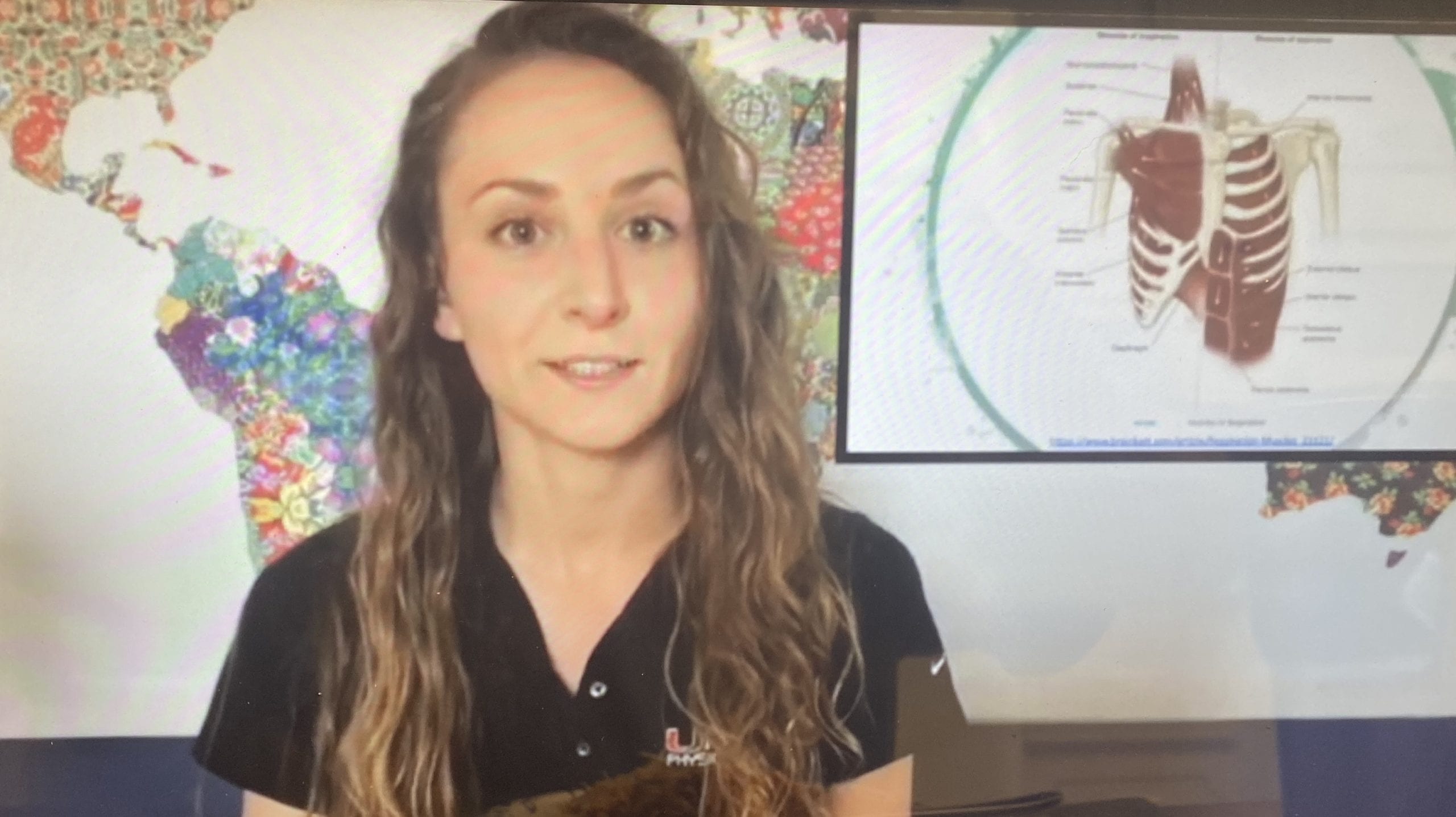(October 2020) Anne E. Palermo, PT, DPT, Ph.D. Candidate and Staff Physical Therapist, Department of Physical Therapy and The Miami Project, and colleagues, recently published a paper in Spinal Cord Series and Cases that demonstrates the benefits of respiratory muscle training (RMT) in the home setting. The researchers, including Lawrence P. Cahalin, PT, PhD, Professor, Department of Physical Therapy, and Mark S. Nash, PhD, Associate Scientific Director for Research, The Miami Project, reviewed home-based RMT programs completed by individuals with SCI that have been published since January 1, 2019 and incorporated data from a single case study to show the respiratory improvements that are possible for those living with spinal cord injury (SCI). The purpose of the review and case report, titled A Case for Inspiratory Muscle Training in SCI: Potential Role as a Preventative Tool in Infectious Respiratory Diseases Like COVID-19, was to show that a home-based inspiratory muscle training (IMT) program is both feasible and may be an effective therapy to prepare the respiratory system of patients with SCI for COVID-19 and its secondary impacts.
Respiratory complications (RC) are a leading cause of death after SCI due to compromised immune function and respiratory muscle weakness. Thus, individuals with SCI are at high risk of developing COVID-19 related respiratory complications. With more readily available home RMT options, those living with SCI could help strengthen their respiratory muscles without the need for costly, time-consuming, and not readily available medical interventions.
Results of a SCI clinical trial showed a supervised RMT program decreased risk of developing complications, but the viability of conducting unsupervised RMT is not as well documented. Some of the published papers in which unsupervised RMT was performed showed significant improvements in respiratory outcomes. The Miami Project team wanted to further demonstrate, through this review and case report, that an IMT home exercise program is feasible and may prepare the respiratory system for to fend off RC associated with COVID-19, an especially important issue for those patients living with SCI.
In conclusion, evidence to understand how COVID-19 will impact the SCI community remains incomplete, but we know that this population can be at a much greater risk of developing significant medical issues due to COVID-19. Anxieties related to COVID-19 have already been widely reported to clinicians globally by those living with SCI, so this case study, along with the recent literature of RMT home exercise programs, provides evidence that a home based IMT program is feasible and may be an effective preventative measure to inhibit or fend off respiratory dysfunction in patients with SCI who contract the COVID-19 virus. The Miami Project team will conduct additional studies to attempt to better understand the impacts of a home-based RMT regimen on the SCI community.

